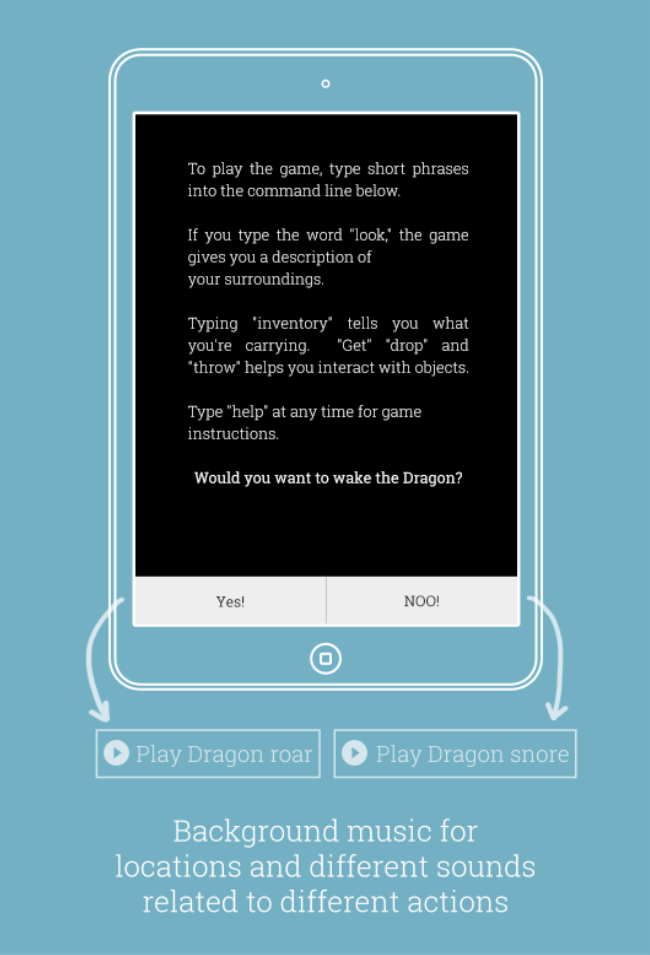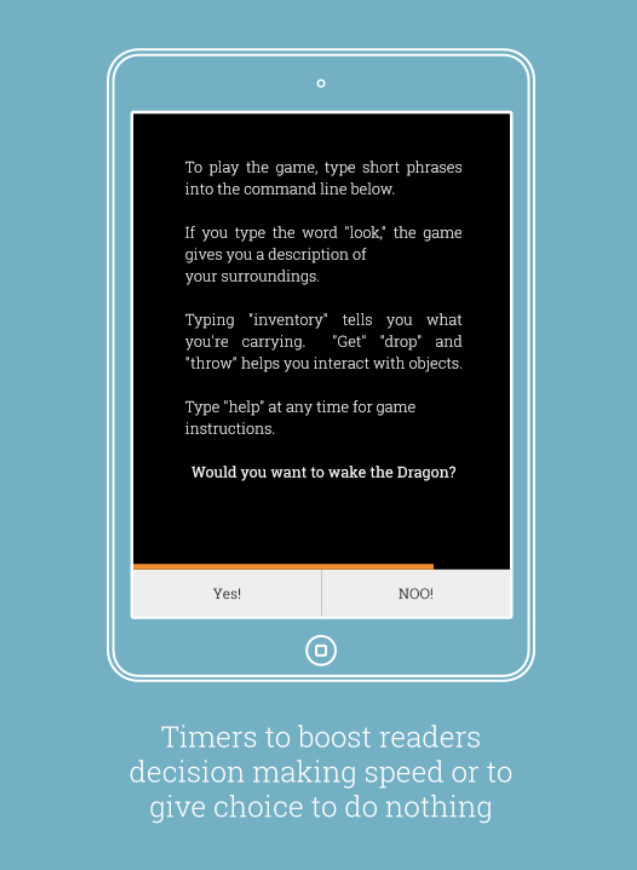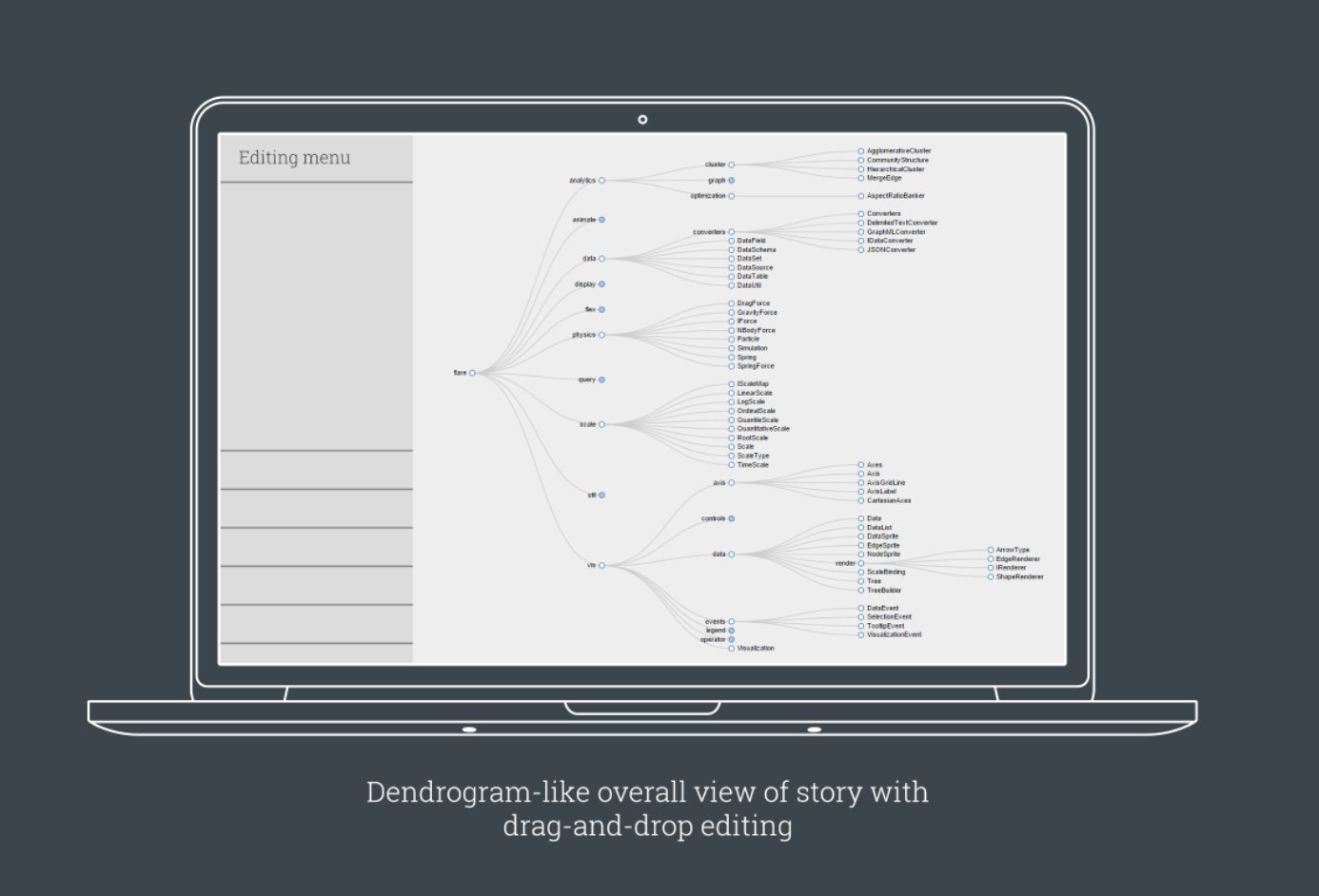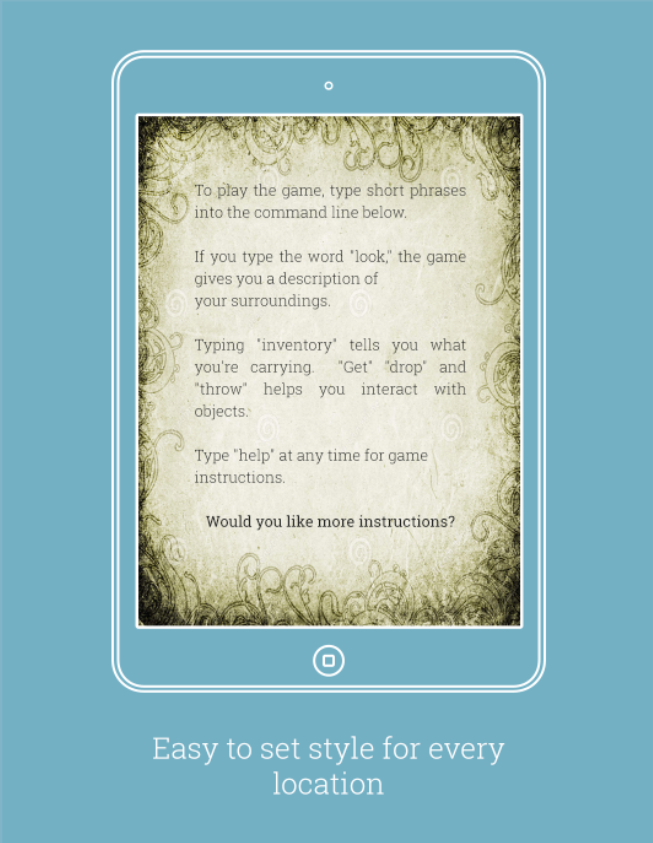Hi all! I’m IF lover and in parallel senior full-stack developer. And recently I became interested in how to make IF. So I went through existing tools for creating interactive stories and I think they lack some really useful things. I don’t say that they are bad and yes, many great IF appeared thanks to them.
But I think we can do much more. Because IF is not about choices, passing through decisions and just reading. I believe that it’s about emotions and feelings, about engaging and participation in story.
Look at Lifeline, Telltale games - all these stories make us feel much more involved in them because of atmosphere that they create. They add timers, delays, soundtracks, appropriate style and other things that help them to recreate experiences and feelings of heroes.
So how about a tool to make IF more engaging with little effort to authors?
I plan to create app with features like these:
• Wide platform support - iOS, Android, Windows Phone, Blackberry, Mac OS X, Windows, Linux
• One click to export to mobile or desktop app (via build-in apache cordova integration), self-hosted site (via static generators) or standalone package to embed on your site
• Ability to add background music for locations and sounds for actions

• Support for timers to boost player choices and delays to enter them into an intriguing waiting

• Build-in support for device information which you can use for experience personification (volume, geo, battery, brightness and other)
• Integration to services like Google maps or Facebook to make tightly coupled with reality experiences (ex. real life quests)
• Graphical view of whole story in dendrogram

• Easy to write markdown-like syntax with ability to add some complex scripts if you want
• Easy data binding with simple “mustache” syntax: You write “Oops! Oxygen level is {{oxygen.level}}”, set oxygen level to 23 and then reader gets “Oops! Oxygen level is 23”
• Animated background color tint changes to influence on story perception
• Ability to add styles such as fonts, borders and textures for different locations with ease.

• Global view of all variables (locations, objects, characters) in one place where you would able to edit them with easy and get overall view of story
• Ability to monetize without effort in Google Play, App Store and other platforms
• And many other things!
It’s rough sketch of future possible platform to create from beginning to end engaging interactive stories, quests or new reading experience with synced sounds and ambient music, that let you concentrate on your story rather than on writing code and fighting with software.
And now I want to ask you - do you want to change future of IF and spread really engaging stories all over the world? Do you think that such software can help us to do this? Because I plan to start Indiegogo campaign. It won’t be about money, but about to find out how many people want to do this with me, and do they really find such things helpful to them.
What do you think?